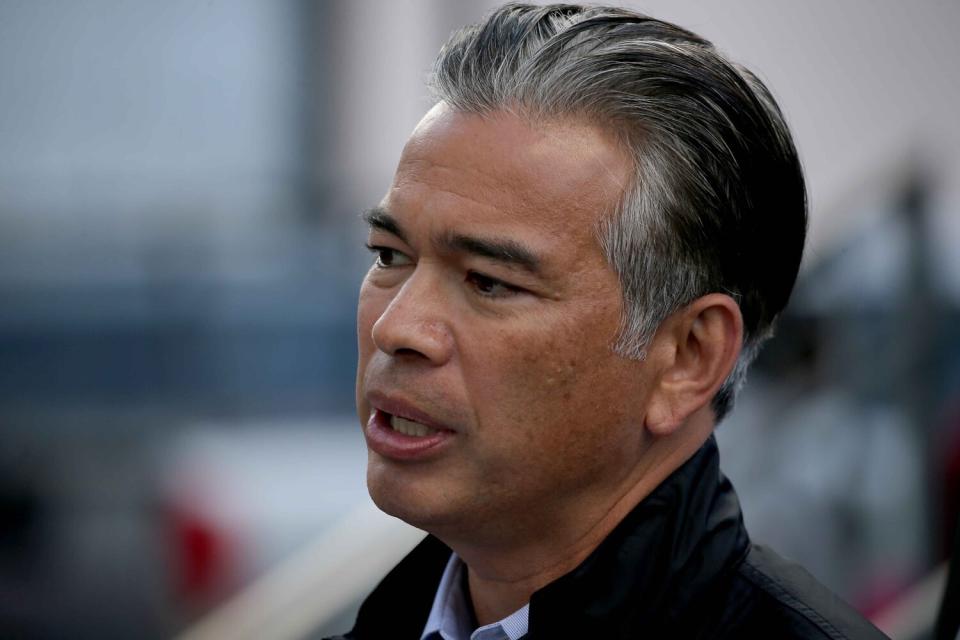California attorney general accuses wealthy town of using mountain lions to skirt affordable housing law

- Oops!Something went wrong.Please try again later.
State Atty. Gen. Rob Bonta accused managers of a posh Silicon Valley suburb on Sunday of trying to skirt new affordable housing requirements by declaring their town a sanctuary for mountain lions.
Woodside, an enclave in the foothills west of Stanford University, announced last month in a memo to its 5,500 residents that because the entire town was habitat for the potentially endangered mountain lion, it was exempt from a new law that permits duplex development on single-family home lots.
Bonta, a Democrat, called the move "a deliberate and transparent attempt to avoid complying with the law," known as SB 9.
"This memorandum is — quite clearly — contrary to the law, and ironically, contrary to the best interests of the mountain lions the town claims to want to protect," Bonta said.
By failing to help California expand its housing supply within existing towns, Woodside "would increase the likelihood of exurban sprawl that will adversely affect the habitat of mountain lions," Deputy Atty. Gen. Matthew T. Struhar told Woodside's town manager Sunday in a letter.
The town manager, Kevin Bryant, did not immediately respond to an email seeking comment, nor did the mayor, Dick Brown.
California wildlife regulators are weighing whether to declare mountain lions an endangered species.
Struhar's letter, sent on Bonta's behalf, said there was "no valid basis to claim that the entirety of Woodside is a habitat for mountain lions."
"Land that is already developed — with, for example a single-family home — is not, by definition, habitat," Struhar wrote, using italics for emphasis. "That mountain lions appear in Woodside from time to time does not make any of its individual parcels mountain lion habitat."
Struhar noted that the mountain lion's overall range includes "the vast majority of the San Francisco Bay Area."

"That breadth does not make nearly every single parcel in the San Francisco Bay Area a habitat for mountain lions, nor could the range of mountain lions, or any endangered species, be used to justify a local government's attempt to categorically prohibit a class of housing development within its local boundaries."
Struhar suggested it could "only be assumed" that Woodside's decree was "intended to undermine the Legislature's efforts to combat the crisis-level housing shortage."
The median home value in Woodside is $4.5 million. Its residents have included Oracle founder Larry Ellison, whose 23-acre estate there was modeled after a 16th century Japanese imperial palace.
The prospect of creating more affordable housing has long spurred strongly negative reactions in some California communities.
Woodside is one of about 40 communities in California that have passed new rules limiting housing projects since SB 9 went into effect on Jan. 1, according to YIMBY Law, a San Francisco group that urges local governments to approve more housing.
The new state law generally allows property owners of single-family parcels to build duplexes and, in some cases, fourplexes on their land. But lawmakers gave local governments discretion to add parking requirements or size limitations, among other restrictions.
Gov. Gavin Newsom and Bonta recently created specialized units to investigate cities that unlawfully deny housing projects or evade state laws.
Times staff writer Liam Dillon contributed to this report.
This story originally appeared in Los Angeles Times.

